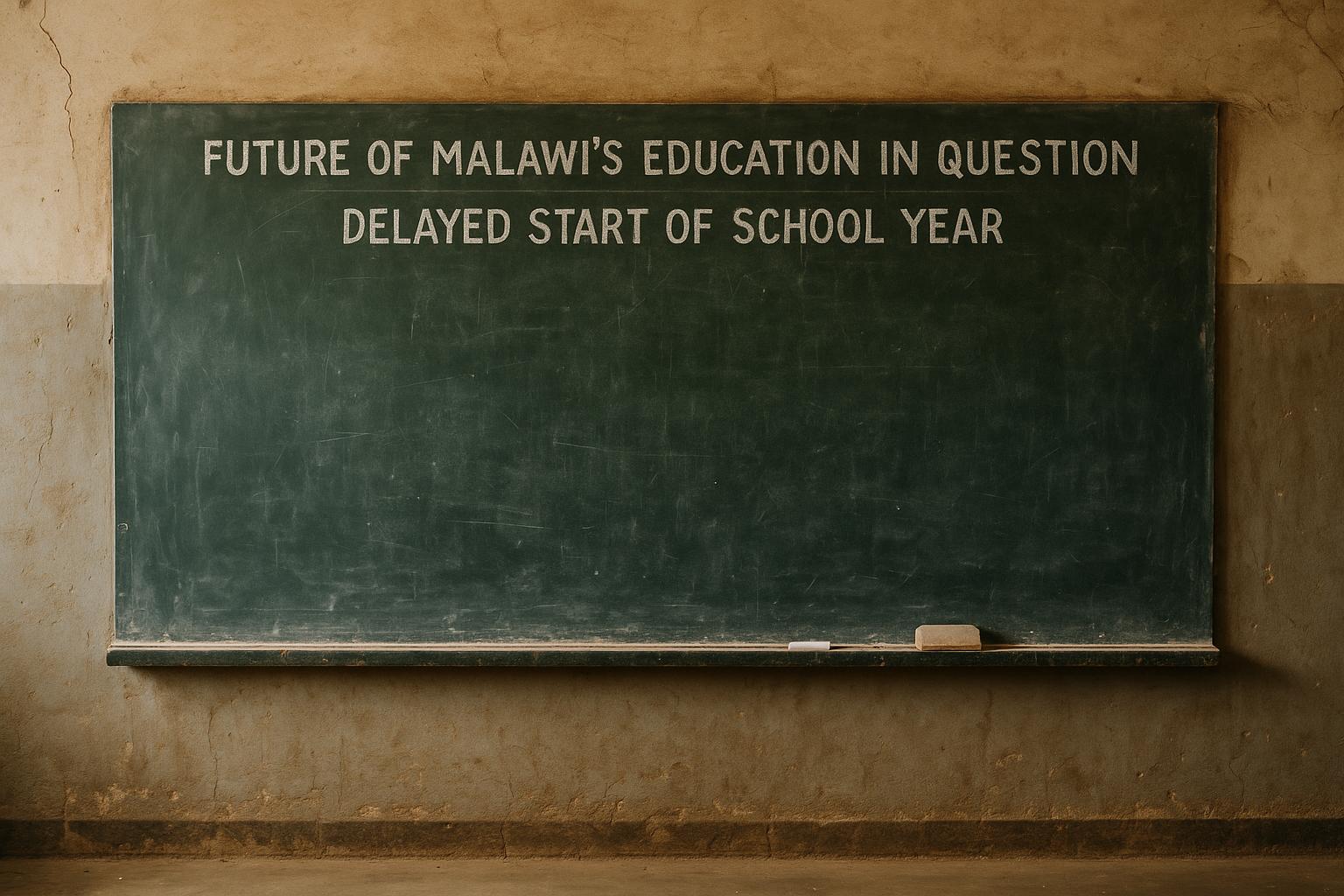The Ministry of Basic and Secondary Education in Malawi has drawn sharp criticism after announcing that schools will reopen on 15th September 2025, advancing the date by one week from the previously scheduled 22nd September. This abrupt change has been met with frustration and concern from education stakeholders, parents, and civil society, who say the government has failed to provide a clear rationale, sparking fears that the decision may destabilise families still grappling with the aftermath of post-election tensions.
Rev. Moses Nkhana, Executive Director of the Mzimba Youth Organisation (MYO), strongly condemned the ministry’s move, describing it as rushed and inconsiderate of the realities facing parents. Speaking about the potential social impact, Nkhana highlighted that Malawi typically experiences episodes of post-election violence, and that the sudden rescheduling could add undue stress to families who are financially and emotionally stretched. He argued that parents, considered key stakeholders in education, should be consulted and their circumstances respected before making such significant policy changes.
Parents have echoed these concerns publicly. Edward Nyirenda, a father from Mzimba, voiced suspicion about the ministry’s silence on the reasons for the decision, suggesting it might be politically motivated. “Why change the date like this? I understand most teachers have been deployed for elections. The ministry is causing unnecessary panic. Schools should open after the elections, as was initially announced,” he said. Such sentiments speak to a broader anxiety about transparency and inclusivity in policymaking, with stakeholders warning that sudden shifts without consultation risk eroding public trust in the education system.
This incident comes amid a wider context of government efforts to reform and improve the education sector. Earlier this year, the ministry publicly celebrated a notable improvement in the Malawi School Certificate of Education (MSCE) results, which reached a pass rate of 58.44%, the highest in five years. Principal Secretary Rachel Chimbwete Phiri attributed this success to targeted interventions, while also pledging investigations into underperforming schools, especially in the private sector, to drive further advancements in educational quality.
Simultaneously, the government has introduced measures to foster national identity and civic responsibility within schools, including a directive mandating that students sing the full national anthem at assemblies and events. This directive, endorsed by presidential order, seeks to cultivate patriotism and unity among young learners, emphasising the role of education in nation-building.
However, the sector continues to face challenges related to governance and discipline. For instance, in January 2025, Chaminade Marianist Secondary School was closed by the Ministry of Education for corporal punishment and other governance failures. The closure underlines the ministry’s intolerance for outdated disciplinary practices and its commitment to upholding legal and ethical standards in schools.
The education ministry has also reaffirmed its commitment to infrastructural development, showcased by the inspection of new state-of-the-art classrooms and facilities in several districts. Minister Madalitso Kambauwa Wirima has highlighted these efforts as part of the broader Malawi Education Reform Programme, aimed at creating a conducive learning environment. This reflects a government push to bolster both the physical and qualitative aspects of education.
Political voices remain influential in shaping education discourse. Presidential candidate JB Banda, for example, has publicised plans to invest heavily in education and agriculture, emphasising expanded bursary schemes and infrastructure improvements, including student hostels to support learners' needs comprehensively.
Against this backdrop, the ministry’s sudden decision to accelerate the school reopening date raises questions about the priorities and processes driving policy changes. Stakeholders argue that while efforts to improve education are commendable, effective and inclusive communication with parents, educators, and communities is essential to maintain confidence and stability. The lack of clear explanation and engagement in this instance risks undermining the progress made and sows doubt about the motivations behind the change.
As the reopening date approaches, vigilance by all parties involved will be crucial in ensuring that the best interests of learners are served without being overshadowed by political or administrative expediencies. Transparent dialogue and collaborative planning remain key to achieving a resilient and trustworthy education system in Malawi.
📌 Reference Map:
- Paragraph 1 – [1], [2]
- Paragraph 2 – [1], [2]
- Paragraph 3 – [1], [2]
- Paragraph 4 – [4]
- Paragraph 5 – [5]
- Paragraph 6 – [3]
- Paragraph 7 – [6]
- Paragraph 8 – [6], [7]
- Paragraph 9 – [1], [2]
Source: Noah Wire Services
